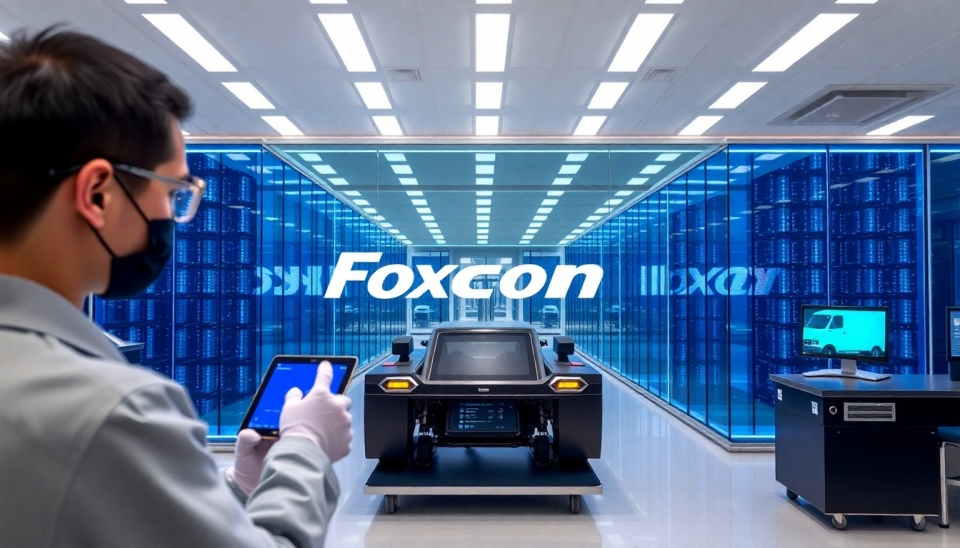
In a surprising turn of events, Foxconn, the Taiwanese electronics manufacturing giant best known for assembling Apple products, has reportedly initiated discussions with Nissan to explore the possibility of acquiring a controlling stake in the renowned Japanese automaker. This intriguing move signals a potential strategic shift not only for Foxconn but also for the broader automotive landscape.
Sources close to the matter disclosed that Foxconn's interest in Nissan is primarily driven by the company's ambition to expand its footprint in the electric vehicle (EV) market. As traditional automotive manufacturers pivot towards electrification, Foxconn is looking to enhance its capabilities and diversify its portfolio beyond consumer electronics, tapping into the growing demand for EVs worldwide.
Nissan, which has historically been a frontrunner in the electric vehicle sector with its popular Leaf model, has faced several challenges in recent years, including declining sales and competitive pressure from both established automakers and new entrants in the EV space. The potential partnership with Foxconn could provide Nissan with not only much-needed capital but also innovative manufacturing solutions that Foxconn claims to excel in.
The discussions come at a particularly critical time for the automotive industry. As manufacturers around the globe are grappling with supply chain disruptions, rising material costs, and shifting consumer preferences, collaboration between tech-savvy companies like Foxconn and traditional automakers is becoming increasingly common. Analysts believe that such partnerships could help streamline production processes and facilitate faster innovation.
If the negotiations lead to a formal agreement, it would mark a significant shift in Nissan’s corporate governance and strategy, positioning Foxconn as a major player in the automotive industry. While details regarding the financial aspects of the potential deal remain under wraps, it is speculated that Foxconn’s investment could pave the way for enhanced collaborative efforts in research and development for future electric and autonomous vehicle technologies.
Market reactions to the news have been mixed, with some investors expressing optimism about a potential alliance that could revitalize Nissan's operations. Others, however, caution that such a transaction could lead to corporate governance complexities, particularly given Nissan's historical independence and identity within the automotive sector.
As the negotiations continue, industry watchers will be keen to see how this potential partnership evolves and what it might mean for the future of both companies, particularly as they navigate the rapidly changing landscape of mobility and technology integration.
In conclusion, Foxconn's talks with Nissan could represent a groundbreaking shift in how tech companies engage with the automotive market, opening the door for future collaborations that blend manufacturing expertise with innovative technologies. The outcome of these discussions will undoubtedly be pivotal for both parties as they seek to adapt to an ever-evolving industry.
#Foxconn #Nissan #ElectricVehicles #AutomotiveIndustry #TechPartnerships #EVMarket #InvestmentNews #CorporateStrategy #ManufacturingInnovation
Author: Emily Collins




